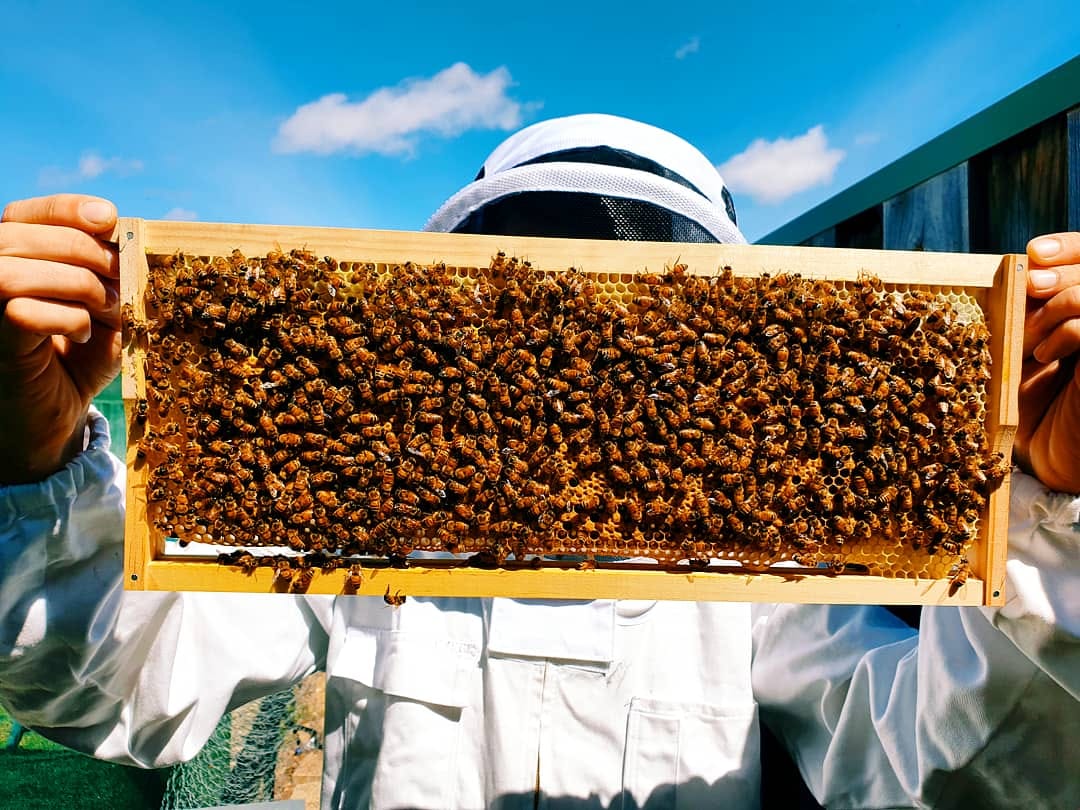
Ethical beekeeping:
A happy queen and colony of bees won't leave their hive until they run out of room to expand/ they get the urge to "swarm" (split the colony into 2 groups) mostly in spring time, and make a new hive elsewhere. An easy way to solve this (Not what we do) is to clip the wings of the queen bee to force the queen to stay in the hive, and hence the bees can't swarm out of the hive. This can make the bees grumpy and attack more often as they cant fulfil their most basic instinct. how would you like to be stuck in your house forever?
So if we don't clip the wings of a queen bee how do we make sure the colony is happy and allow it to swarm whilst making the most of this instinct?
well with regular brood box inspections of course!
particularly in the springtime, when the colony has a natural tendency to swarm. we look inside the brood box for presence of queen cells. which can mean the colony plans to swarm within a week. THIS IS A GOOD THING and we can make the most of this scenario by removing the frames with queen cells on them along with plenty of bees and some honey stores and putting them all into a new small beehive called a "nuc" which will grow into a full size hive by the seasons end.
by doing this it fulfils the bees need to swarm and the beekeeper gets another hive to love.
Why Bees Need to Keep Their Honey
Bees collect and use nectar to make honey, which provides vital nourishment for them, especially during the winter when there are limited natural nectar sources. Since nectar contains a lot of water, bees have to work to dry it out, and they add enzymes from their own bodies to convert it into food and prevent it from going bad. the makeup of our hives leaves the bees with approximately 20kg + any stores around the brood they may have for the winter period. This ensures that the colony will have enough food to get them through the winter period nice and healthy and strong to start the next season.
Did you know a worker bee may visit up to 10,000 flowers in one day and, in her lifetime, produce only 1/12 of a teaspoonful of honey. :0


Comments (0)
Back to Pure & Natural Honey Co